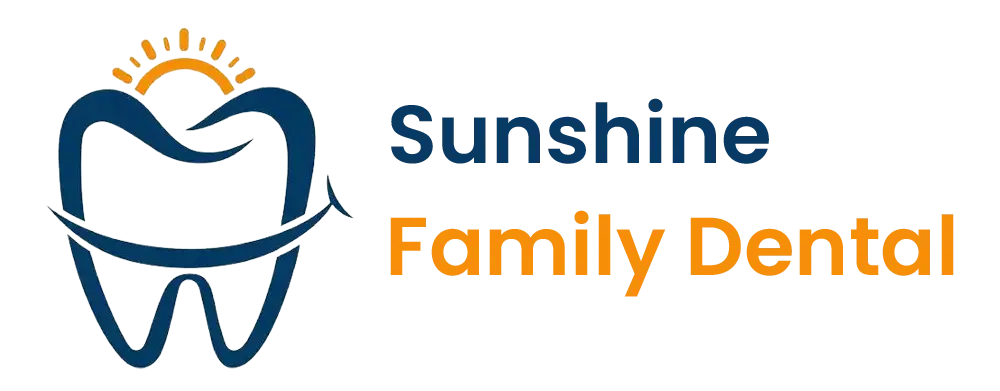Please reach out to our dental practice in Pleasanton, CA, to have a consultation with our dentist, Dr. Dogra. Please call us at (925) 600-9006 or schedule an online consultation, and we’ll guide you further.

Do All Wisdom Teeth Need to Be Removed? A Guide to When Extraction is Necessary
Wisdom teeth, those mysterious third molars that typically emerge in late adolescence or early adulthood, often spark curiosity and concern. For some, they come in without a hitch; for others, the arrival can be quite tumultuous. As we navigate this pivotal stage of dental development, many find themselves asking an essential question: Do all wisdom teeth need to be removed?
Understanding the role of these teeth is crucial. While they once served our ancestors as tools for chewing tough vegetation, modern diets have rendered them somewhat redundant. So why do so many people end up with recommendations for wisdom teeth extraction? Let's dive into when removal becomes necessary and what you should know about navigating this common dental procedure—especially if you're searching for wisdom teeth extraction in Pleasanton, CA.
Why some people need their wisdom teeth removed
Wisdom teeth, or third molars, typically emerge between the ages of 17 and 25. For some people, these late bloomers can cause a host of problems.
One major issue is overcrowding. If your jaw isn't large enough to accommodate them, wisdom teeth can push other teeth out of alignment. This misalignment often results in discomfort and contributes to dental complications down the line.
Another reason for removal is impaction. When wisdom teeth don't fully erupt or grow at an angle, they may become trapped within the gums or jawbone. This condition can lead to pain and infection.
Additionally, some individuals face an increased risk of cavities due to their hard-to-reach location at the back of the mouth. Cleaning these molars effectively becomes challenging as conventional brushing techniques fall short.
These factors highlight why many opt for wisdom tooth extraction as a preventive measure against future dental issues.
Signs that wisdom teeth should be extracted
Many individuals experience discomfort as their wisdom teeth emerge.
- If you notice persistent pain in the back of your mouth, it could be a sign that extraction is necessary.
- Swelling around the jaw or gums can also indicate issues with these late-arriving molars. Pay attention to any redness or inflammation; this might suggest infection.
- Another red flag is difficulty opening your mouth fully. If you find yourself wincing while chewing or speaking, those wisdom teeth may need to go.
- Keep an eye on any crowding of adjacent teeth as well. When there's not enough space for proper alignment, extractions are often recommended.
- If you develop cysts or tumors around the wisdom tooth area, seeking dental advice promptly is crucial. These complications warrant immediate action and possible removal for better oral health. Contact us to learn more.
Potential complications of not removing wisdom teeth
Neglecting to remove problematic wisdom teeth can lead to several complications. One common issue is overcrowding. As these teeth emerge, they may push against adjacent molars, resulting in misalignment.
Another concern is infection. Wisdom teeth often have limited space and can become trapped beneath the gums, leading to pericoronitis—a painful condition caused by bacteria buildup.
Cysts are a possibility as well. These fluid-filled sacs can form around impacted wisdom teeth, causing damage to surrounding bone or roots of other teeth.
Additionally, untreated issues might escalate into more severe dental problems that require extensive treatments later on. Regular check-ups with a dentist can help catch these potential complications early before they develop into significant health concerns. Taking proactive steps now could save you from future discomfort and costly procedures down the line.
Alternatives to extraction
For some, wisdom teeth extraction might not be the only option. Dental professionals in Pleasanton, CA often consider alternatives based on individual circumstances.
Monitoring is one approach. If your wisdom teeth are growing without causing issues, regular check-ups can ensure they stay in good health. This allows for timely intervention if problems arise later.
Another alternative involves orthodontic treatment. In cases where misalignment occurs due to emerging wisdom teeth, braces or other corrective measures may help realign existing teeth and create space.
Some people explore holistic methods as well. Natural remedies like saltwater rinses or herbal treatments can alleviate discomfort temporarily but won't address underlying issues long-term.
Discussing these options with a dental professional is key to finding the best path forward for your oral health needs.
The extraction process and recovery time
The extraction of wisdom teeth is a common dental procedure. It usually begins with an evaluation and imaging to determine the position of the teeth.
Local anesthesia or sedation is typically administered to ensure comfort during the process. The dentist makes incisions in the gum tissue, if necessary, to access impacted teeth.
Once exposed, the tooth may be broken into smaller pieces for easier removal. After extraction, stitches might be used to promote healing. Recovery varies from person to person but generally takes about three days for initial healing. Most patients experience some swelling and discomfort afterward.
Over-the-counter pain relief can help manage any soreness. Resting and following your dentist's aftercare instructions will speed up recovery significantly.
Staying hydrated and eating soft foods like yogurt or applesauce can also make this time easier on you while you heal properly.
Conclusion: Making an informed decision about wisdom tooth removal
When it comes to wisdom teeth extraction, knowledge is power. Many individuals will experience changes in their oral health as these third molars emerge. Understanding the factors that influence whether or not extraction is necessary can help you make informed decisions about your dental care.
Consulting with a dental professional who knows your unique situation is essential. They can provide guidance tailored to your specific needs and recommend if wisdom teeth removal is right for you. By weighing the signs, potential complications, and alternatives, you can approach this decision confidently.
If you're considering wisdom teeth extraction in Pleasanton, CA, take the time to research and discuss all options available with your dentist or oral surgeon. This way, you'll be fully prepared for any treatment path you choose and ensure optimal health for your smile now and in the future.
Office Hours
MON - WED9:00 am - 5:00 pm
THUClosed
FRI9:00 am - 5:00 pm
SAT8:30 am - 2:30 pm
SUNClosed



comments